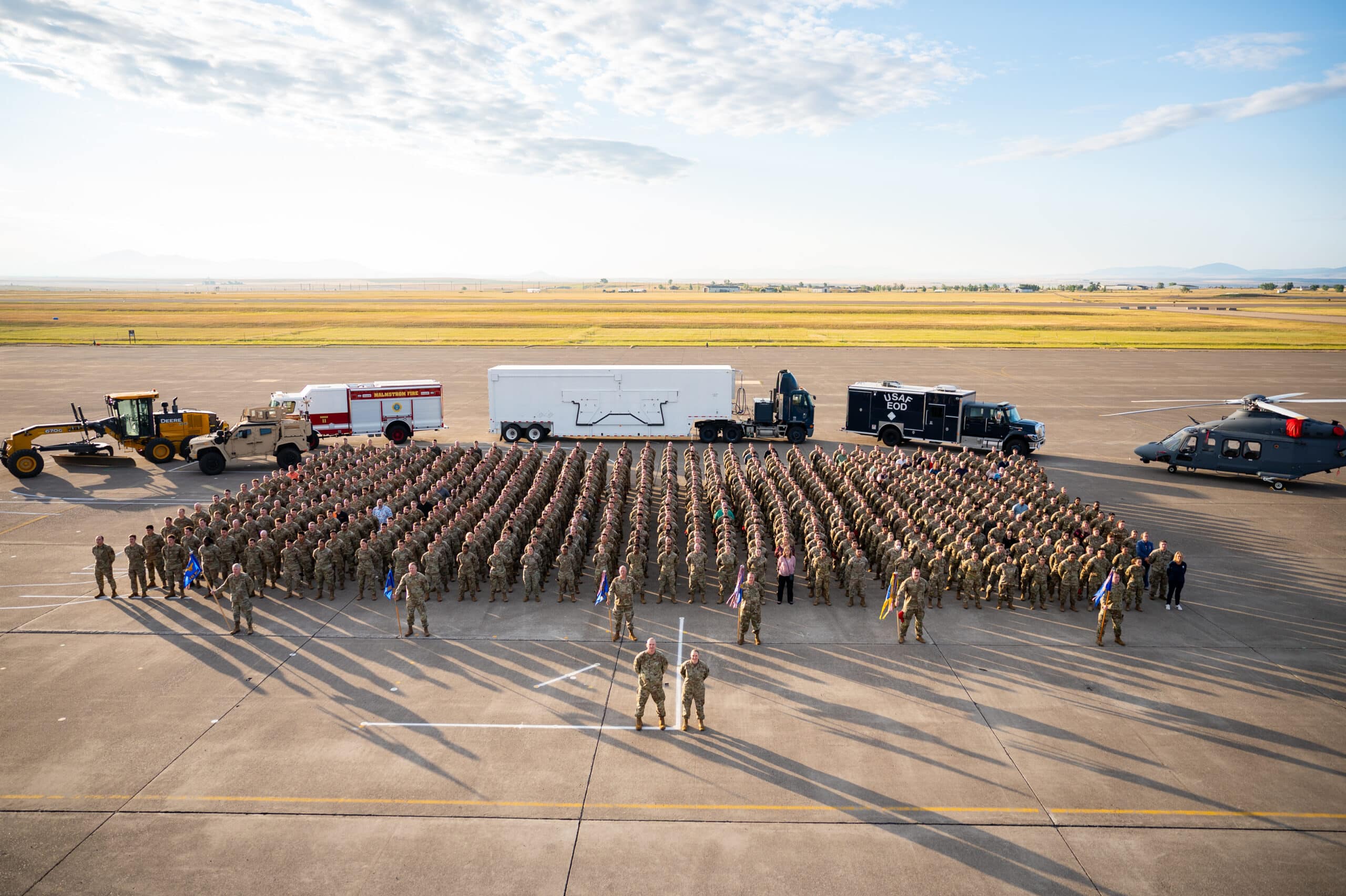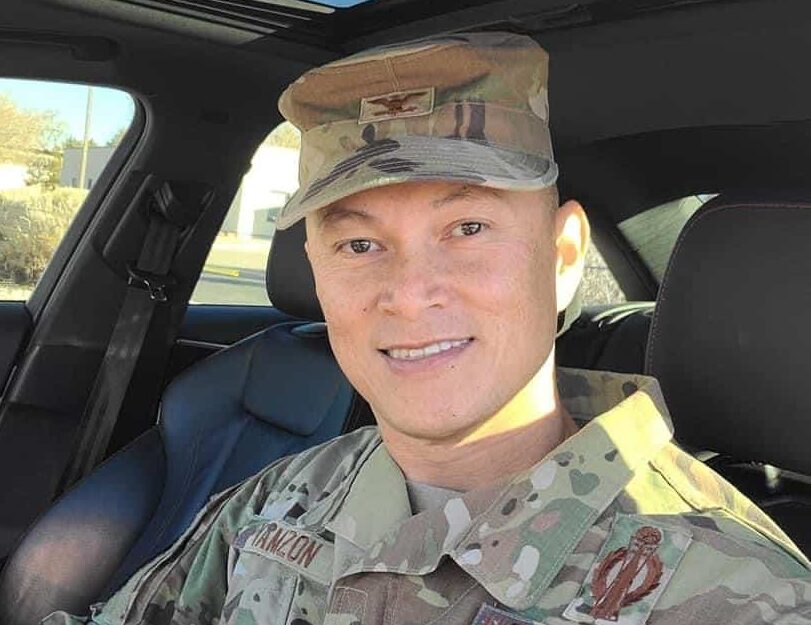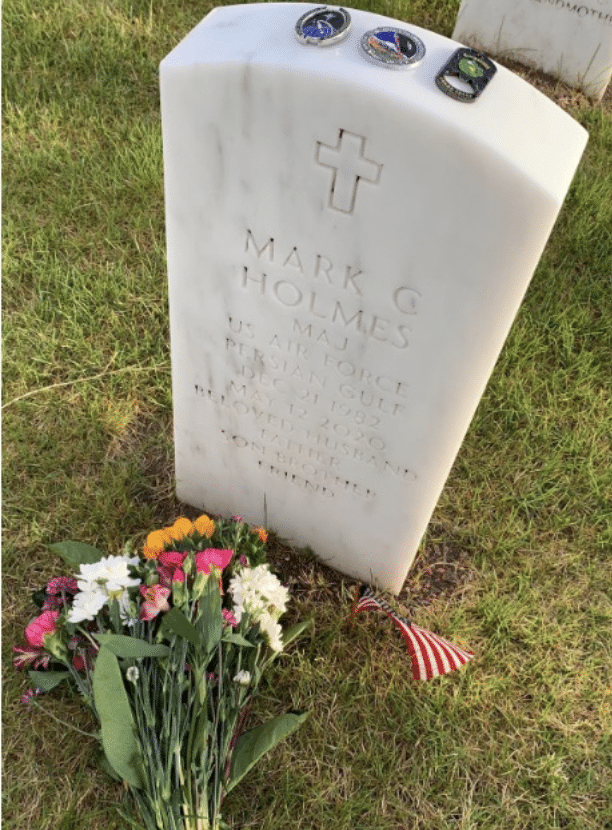September Dispatch
Hello Torchlight Initiative subscribers, registrants, and supporters. This periodic dispatch will provide a status update concerning Air Force (AF) Intercontinental Ballistic Missile (ICBM) community cancers and other diseases, illnesses, and disorders. We’ve made a lot of progress since the last dispatch and would like to share with you where we’ve been and where we’re going. While it’s been a while since you’ve heard from us, know that we’re taking action every day to build awareness across the ICBM community, the U.S. Department of Veterans Affairs (VA), the Department of Defense (DoD), and our primary care managers. We will not let this progress slip away and we will not require the next generation to solve this problem for us.
What an extraordinary, heartbreaking, and rewarding adventure this has been. The Torchlight Initiative began on 21 January 2023, shortly after the “Malmstrom Initiative” briefing was leaked to the press by an unknown party. While the Malmstrom Initiative focused on concerns about disproportionate non-Hodgkin Lymphoma (NHL) rates among Malmstrom Air Force Base (MAFB) Missileers, the Torchlight Initiative’s mission quickly pivoted to include the entire missile community. We strongly suspect lymphoma is not the only disease disproportionately impacting our members. As such, we’ve expanded the scope of our data collection to include a broad spectrum of cancers and other diseases, illnesses and disorders potentially caused by toxic exposures in the missile field. Throughout Torchlight’s evolution, we have and will continue to address health issues of vital interest to the entire Air Force ICBM community – specifically where higher diagnosis rates impact those that operated, maintained, supported, or protected ICBMs and associated equipment.

There’s no room for incomplete knowledge or substandard performance when caring for the ICBM community.
Colonel (ret) Michael “Yammy” Yamzon’s Story
Colonel (ret) Michael “Yammy” Yamzon recently retired from a 22 year USAF career as an ICBM operator and leader. He served the USAF and ICBM communities as a Missile Combat Crew Commander, Instructor, Chief of Eval, Director of Operations for the 341 Operations Support Squadron, and Commander, 532d Training Squadron. Yammy completed his ICBM career as the Chief of Defense Nuclear Inspection Oversight at the Defense Threat Reduction Agency.
Yammy served his country honorably for over two decades. He was ready to stop moving, take off the uniform, and enjoy a second career as a civilian while spending more time with family, especially his three boys. Unfortunately, a few months after retirement, he went to the doctor for the same symptoms he’d been experiencing for years. His provider performed some common sense exploratory tests in response to his symptoms, and within a few short weeks, he was diagnosed with lung cancer, specifically mesothelioma. Yammy immediately reached out to his missile community not just for support but to encourage them to build their own awareness of environmental exposures to lead, polychlorinated biphenyls (PCBs), asbestos, and other toxic elements in our work environment. We thank you Yammy for socializing what you’ve learned as well as your story. Know that your community stands with you during your treatments and wishes you all the best. Watch the video narrative of Col (ret) Yamzon explaining this tough situation and how he fights with a smile.

“Recognize the environment that we are asking the ICBM community to work in … Recognize it and do something about it.” Col (ret) Yamzon
Current News/USAFSAM Update
The commander of Air Force Global Strike Command (AFGSC) held a public virtual town hall on 6 June 2024 with current and former missile community members. The meeting provided an update on the AFGSC/CC directed Missile Community Cancer Study (MCCS), which recently began Phase 1B of the Epidemiology review, analyzing the Department of Defense Cancer Registry and Veterans Affairs data sets. In summary, the Air Force’s internal environmental study hasn’t found any higher levels of toxic chemicals in the air, water or soil. They have however found at some sites, higher levels of PCBs which are probable human carcinogens according to the EPA.
The Air Force’s internal epidemiological study is ongoing to determine if there are higher rates of cancer in ICBM community members. The results for this portion of the study were initially scheduled for release in summer of 2024 but that date has been pushed to the fall.
MISSILE COMMUNITY MUSTER
On 11 May 2024, the Torchlight Initiative held a muster ceremony, or roll call, for AF ICBM community members (missileers, maintainers, security forces, facility managers, military family members, etc.), lost to probable service-related cancers and other illnesses.
The ceremony was held at Pikes Peak National Cemetery, Colorado Springs, CO, Section 6, near site 193 (Maj Mark Holmes’ gravesite). Mark Holmes was a former 10th Missile Squadron, 3 SOPS and 19 SOPS member. He died on 12 May 2020 after a short battle with non-Hodgkin Lymphoma. He was diagnosed with and treated for NHL while in the USAF Reserves, and died only 60 days after performing a 19 SOPS shift, yet his illness and death are currently not considered service connected by the VA. We are working diligently to change that. We will continue to use the anniversary of Mark’s death to remember him and the many others that were lost to similar circumstances, the fallen Airmen of 20 AF.
This year we read the names of 51 departed souls, 48 service members and 3 family members. The USAF needs to understand that the families of the deceased and community members currently sick and suffering think about these cancers and diseases every day. These families think about how their their lives were impacted by the ICBM work environment, and about how those hazards are still present in the ICBM work environment. We will not stand by and wait for others to act. What actions are being taken by the USAF to recognize these casualties, to look the family members in the eye and tell them “thank you”?

That’s why we are here today; to take action, to confront the brutal reality of today, and to remember. And we are here to look the family members of these lost Airmen in the eye, and tell them “thank you,” to tell them that WE remember. If the reality we face is threatening and terrible, then let us see it for what it really is. Let us face it together so we can fight. And if there is something beautiful in remembering the service of our fallen comrades and the sacrifice of their families, let us do that together too.
We answer for them because they cannot answer for themselves.
We recognize their service.
We recognize the sacrifice they made for us and for this country.
We will speak for them, and fight for them.
We will take care of their families, and we will tell their stories.
They have fallen, and we will carry the torch for them.
THIRD-PARTY RESEARCH
The Registry currently tracks 700+ individuals and includes an alarmingly high number of blood cancers and disorders. An updated Registry Summary will be posted to the Torchlight website by the end of September. A recent third-party supported, deep-dive analysis of our data shows evidence that NHL diagnosis rates among missileers at MAFB are higher than NHL diagnosis rates of the general U.S. population. A preliminary draft of this research will hopefully be released soon. The research concludes the number of observed NHL diagnoses among MAFB missileers is higher than the national rate and the diagnoses occur at a younger age than the national median age of diagnosis for NHL. While we know MAFB missileers have disproportionate rates of cancer, we don’t know the cause nor do we know if this phenomenon expands to other bases, other career fields or other types of cancers and illnesses. We suspect it does, but further research will be required to verify these assumptions.
Be assured our intent is not to focus solely on missileers, Malmstrom, and NHL. We believe our current research into NHL is laying the groundwork for more comprehensive studies of additional diseases, illnesses, bases, and career fields. Identifying statistical abnormalities in one group of individuals with one illness brings attention to the greater issue of toxic exposure risks community-wide and opens the door for additional funding and studies.
UPCOMING EVENTS
1. The Torchlight Initiative will be represented at the 2024 Association of Air Force Missileers, 26 Oct 2024, Buellton, CA. We will give a 45 min presentation on our mission and our findings, then we will answer questions on a panel with representatives of the USAF School of Aerospace Medicine.
2. A FaceBook page was recently created to provide a place for current and former ICBM community members, their families and other concerned personnel to discuss and build awareness on the higher rates of cancer and other diseases, illnesses, and disorders amongst those that operated, maintained, supported, or protected ICBM systems. Join today if you would like to participate in this group and build your missile cancer awareness.
This is a fantastic publication – thank you my friends for keeping the community updated!
All gave some…some gave all…
It is well past time for our Nation to recognize the service and sacrifice of the many men and women suffering illness and debilitation, by treating them with the dignity they worked so hard to deserve.
To all who have served, please know we will not rest until all our brothers and sisters in arms receive the care they need.